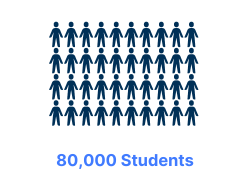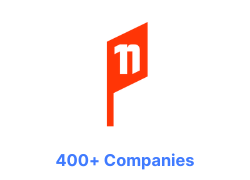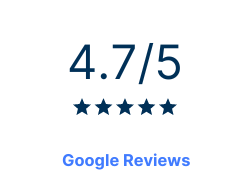
The rapid advancement of artificial intelligence (AI) has brought chatbot technology to the forefront of corporate environments. Among the leading chatbot technologies, Open AI ChatGPT, powered by the revolutionary GPT-4.0 architecture, stands out for its impressive capabilities.
Businesses must emphasise ethical considerations as they integrate these powerful language models into their operations. Ensuring responsible use of AI is not just an option but an imperative.
While integrating an AI chatbot like ChatGPT in corporate environments certainly raises some ethical questions, there is no question that it can enhance your business. If you apply ethical principles and use the technology responsibly, it is possible to leverage it to propel your business to the stratosphere.
But how does one observe ethical AI implementation in a corporate setting?
That's where this article comes in. In the following sections, we will discuss artificial intelligence ethics and responsible AI use so you can leverage ChatGPT to topple the competition and take your business to the next level.

What are the Ethical Concerns Involved in the Use of ChatGPT?
ChatGPT is a powerful AI tool that can generate human-like text to help businesses. However, like any AI technology, several ethical concerns with this chatbot demand careful consideration and proactive mitigation.
Here are some ethical concerns of an AI language model like ChatGPT:
-
Bias and discrimination: You must understand that ChatGPT is a language model that is trained on a vast, human-generated database. Consequently, any biases in the human content can inadvertently seep in.
-
Privacy and security: Data privacy and security in corporate AI implementation are essential to protect user information from unauthorised access, breaches, or misuse.
-
Lack of transparency: One of the most significant ethical AI concerns is our inability to determine where and how the model draws conclusions.
-
Misuse and manipulation: More reliance on AI models will take away human judgment and accountability. Specific scenarios that might impact people's lives should involve human intervention and ethical deliberation.
-
Economical and societal impact: The widespread adoption of AI technologies like ChatGPT might have broader economic and societal consequences, including job displacement, changes in labour dynamics, and potential reinforcement of existing inequalities.
What are the Five Fundamental Principles of AI ethics?
AI ethics are guidelines and principles for responsibly implementing AI tools like Chat GPT in a corporate setting. These principles ensure that the decisions taken by your staff or any other stakeholder stay within ethical guidelines.
Using these principles, you minimise the risk of misuse of these AI language models and use the tools for the betterment of society at large.
Here are the five critical ethics of artificial intelligence:
1. Transparency
Any AI system must be transparent. In other words, all the stakeholders, including the customers, must understand the algorithms and know how the system has arrived at a certain conclusion.
2. Impartiality
Any AI system used in a corporate setting is expected to treat every human equally. It means the systems should not be riddled with biases. Using high-quality training data, an AI system like ChatGPT minimises these biases and eliminates discrimination is possible.
3. Accountability
As the AI algorithms are run by a machine, who is responsible for the results produced? So if something goes wrong, who is to be held accountable? It is crucial for organisations implementing AI to supervise the development of algorithms at every stage closely.
4. Reliability
Consistency is the name of the game with AI implementation in a corporate setting. You want the results generated to be consistent and trustworthy. It becomes even more critical with businesses dealing in healthcare or finances.
5. Safety and privacy
Ensuring responsible data collection is crucial, and organisations must embrace robust data governance systems to improve security. However, if you are careful while implanting ChatGPT, you can address these concerns and create an ethical system that overcomes these caveats.

How to Ensure Responsible and Ethical Integration of ChatGPT in Corporate Environments
The ethical and responsible integration of Chat GPT in a corporate setting is only possible if the model is trained on high-quality data, prioritising transparency and implementing robust data privacy measures.
Here are a few key things to consider:
Implementing AI Guidelines for Corporate ChatGPT Usage
Companies should prioritise diverse and representative data, emphasising fairness and transparency in AI decision-making. It builds trust and keeps your customers safe.
Ensuring Data Privacy and Security
Robust data privacy measures must be in place to protect user information. Involving human reviewers helps monitor AI responses and adherence to ethical standards. Regular assessments identify and address potential issues.
Transparency and Explainability of AI Decision
The AI model must be transparent, and people must understand why the model has made a particular decision. For example, if an artificial intelligence chatbot integrated into a bank's loan approval process denies a loan to a customer, they must understand the reason behind the refusal.
Addressing Bias and Fairness in AI Chatbot Applications
Addressing bias and fairness in AI chatbot applications is crucial to ensure equitable and non-discriminatory interactions. Ethical AI practices promote unbiased and inclusive user experiences.
Mitigating Bias in ChatGPT Language Models
Mitigating bias in ChatGPT language models requires a multi-faceted approach. First, developers should carefully curate and preprocess training data to remove biased content.
Implementing fairness-aware algorithms in training data can further reduce bias. Continuous monitoring and auditing model outputs help identify and address biases that may emerge over time.
Ensuring Fairness in Customer Support and Hiring Processes
If your AI systems adhere strictly to the ethical guidelines we discussed above, there is a high chance that it will be fair to all stakeholders. You must train your model to overcome biases, monitor it closely, and use a diverse and representative database in its training.
Building Trust and Transparency with Customers
Transparency in your AI implementation will bring about customer trust. Be open and honest about your practices, data usage, and AI implementation. Regular communication and soliciting customer feedback demonstrate a commitment to their concerns.
Communicating AI Adoption to Customers
Providing clear explanations when AI technologies like ChatGPT are involved in customer interactions fosters understanding and trust. Disclosing the use of artificial intelligence, offering opt-out options, and respecting data privacy contribute to transparency.
Educating Customers about ChatGPT's Limitations and Use Cases
If you want to use AI like ChatGPT, you must educate your customers about its limitations so they can manage their expectations. You should communicate that AI may not always provide perfect responses and may have biases. Clarifying appropriate use cases helps customers understand the AI's role in enhancing their experience.
The Importance of Responsible AI Usage in Corporations
Ethical AI practices ensure that AI technologies like ChatGPT are used in a responsible manner with fairness, transparency, and accountability. You build trust with customers and stakeholders by mitigating biases, protecting user data, and adhering to ethical guidelines.
Responsible use of AI also minimises potential risks and negative societal impacts, safeguarding against misinformation and discriminatory practices. It fosters a culture of ethical decision-making, aligning your business objectives with social responsibility.

Navigating Legal Principles and Regulatory AI Ethical Issues
Corporations must closely comply with all the AI usage rules and regulations to create a safe environment for their staff and customers.
Compliance with Data Protection Regulations
Organisations deploying AI technologies like ChatGPT must comply with data protection and privacy laws, such as the Privacy Act 1988. It ensures that you are protecting your customer's sensitive data. It also fosters customer trust.
Legal Considerations for AI-driven Decision Making
The Australian Human Rights Commission provides guidelines on responsible AI use to avoid discrimination. Awareness of evolving AI regulations and collaboration with legal experts ensures alignment with Australian standards.
Companies should adopt ethical AI frameworks to address potential challenges and proactively engage in self-regulation to uphold moral AI development and deployment practices.
FAQs
Why should AI be ethical?
The goal of AI tools like ChatGPT is to help human society. The only way to ensure that it is used for this purpose is to use it ethically and responsibly. Nefarious use of this technology can have disastrous consequences.
What is the most essential principle in AI ethics?
Fairness is the most critical principle of ethics of AI. It ensures that AI systems treat all individuals equitably and avoid perpetuating biases and discrimination.
Is it ethical for students to use ChatGPT in their studies?
Yes, it is ethical for students to use ChatGPT in their studies as long as they do so responsibly. ChatGPT can be a valuable tool for research, learning, and generating ideas, but students should cite sources appropriately and be mindful of potential biases in the model's responses.
Ethical Implementation of ChatGPT is the Way to Go
In a world where AI powers innovation, responsible use of ChatGPT in corporate environments is a moral imperative. Navigating the cutting edge of technology demands a compass of principles that prioritise fairness, transparency, and accountability.
By embracing diversity in data, fostering transparency, and upholding user privacy, you can wield AI as a force for good. Balancing technological prowess with ethical consciousness builds trust with customers and stakeholders alike. As we embark on this transformative journey, let us champion ethical AI usage, paving the way to a brighter and more inclusive future for all.
Are you ready to harness the power of AI to drive growth and efficiency? Explore Nexacu's ChatGPT courses today! Our experts will help you master the cutting-edge program and learn how to use it ethically and responsibly through our Beginner course.

 Australia
Australia New Zealand
New Zealand
 Singapore
Singapore
 Hong Kong
Hong Kong
 Malaysia
Malaysia
 Thailand
Thailand
 Indonesia
Indonesia
 phone
phone
 email
email
 enquiry
enquiry
























